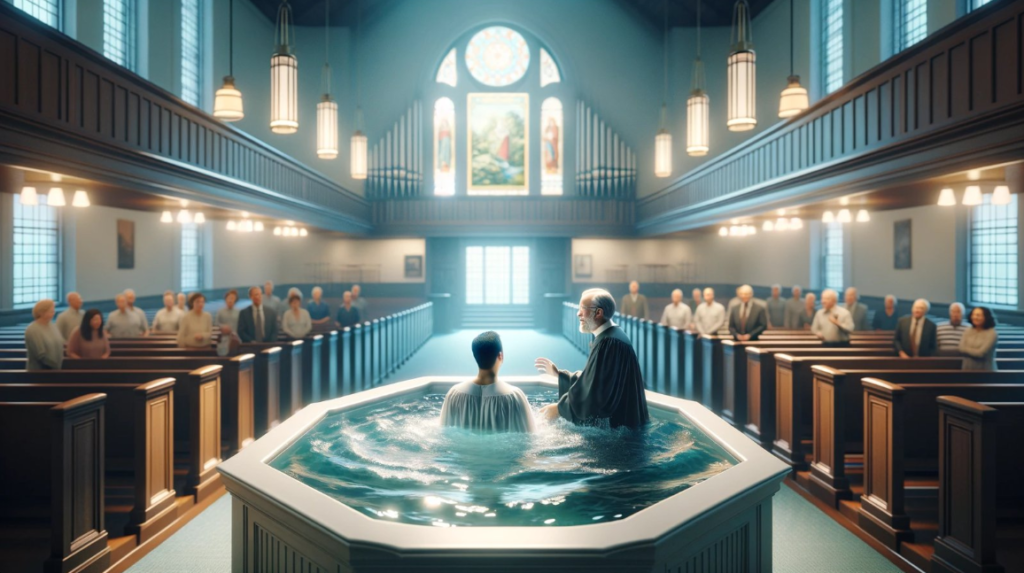The concept of Baptist Church Perpetuity, also known as Baptist Successionism, has been a subject of intense debate within Baptist circles. This theory posits that Baptist churches have existed in an unbroken line since the time of Christ and the apostles. However, this claim is not without its critics. Let’s examine the arguments for and against this controversial idea.
The Case for Baptist Church Perpetuity
Proponents of this theory argue that:
- Jesus promised church perpetuity when He said, “upon this rock I will build my church; and the gates of hell shall not prevail against it” (Matthew 16:18).
- The church is defined as a local, visible entity composed of properly baptized, organized groups of people, given the exclusive right to propagate in perpetuity until Christ’s return.
- This perpetuity is claimed because it is promised by an all-powerful God. Even in the absence of historical documents, faith in Jesus’ promise is sufficient.
- Various historical groups, such as the Anabaptists and Waldensians, are seen as links in this unbroken chain connecting modern-day Baptists to the New Testament church.
Criticisms and Counterarguments
Critics of Baptist Church Perpetuity raise several objections:
- Jesus never specifically mentioned “perpetuity” or that it belongs exclusively to Baptist churches. The promise could apply to all true disciples of Christ.
- Even if we agree on the definition of “church,” there’s a lack of evidence that it refers specifically to Baptist churches to the exclusion of all other denominations.
- The absence of historical evidence is problematic. If the claim of unbroken succession is true, there should be concrete evidence to support it.
- Many denominations claim perpetuity based on Scripture. Without historical evidence, it’s unclear which claim, if any, is valid.
- There are inconsistencies in the historical groups claimed as part of the Baptist lineage:
– Most Anabaptist descendants (Amish, Hutterites, Mennonites) don’t associate with modern Baptists and differ significantly in doctrine and practice.
– The Waldensians, claimed as part of the Baptist lineage, are now largely part of Methodist churches and have no connection to modern Baptist groups. - Even among Baptists, there’s disagreement about which groups can claim this perpetuity. Missionary Baptists, Primitive Baptists, and various Independent Fundamental Baptist groups all make competing claims.
The Questionable Nature of Baptist Perpetuity Claims
While the promise of church perpetuity is biblically supported, the specific claim of an unbroken succession of Baptist churches since Christ lacks substantial evidence. The historical inconsistencies, absence of clear documentation, and denominational disagreements all cast doubt on this theory.
As one critic pointed out, “Any tom, dick or harry denomination will just cite scriptures and claim about ‘perpetuity’… So if a lot are claiming it and citing Scripture for it, who are we supposed to believe? So show the historical evidence. If anybody cannot show it, nobody has any business claiming it.”
The Baptist Successionism view of perpetuity ultimately raises more questions than it answers, leaving the concept of an unbroken succession of Baptist churches since Christ highly questionable. This ongoing debate continues to shape discussions about Baptist history, identity, and theological claims.
 Hi ! my name is Zigfred Diaz. Thanks for visiting my personal blog ! Never miss a post from this blog. Subscribe to my full feeds for free. Click here to subscribe to zdiaz.com by Email
You may also want to visit my other blogs. Click here to learn more about great travel ideas.
Hi ! my name is Zigfred Diaz. Thanks for visiting my personal blog ! Never miss a post from this blog. Subscribe to my full feeds for free. Click here to subscribe to zdiaz.com by Email
You may also want to visit my other blogs. Click here to learn more about great travel ideas.


Leave a Reply